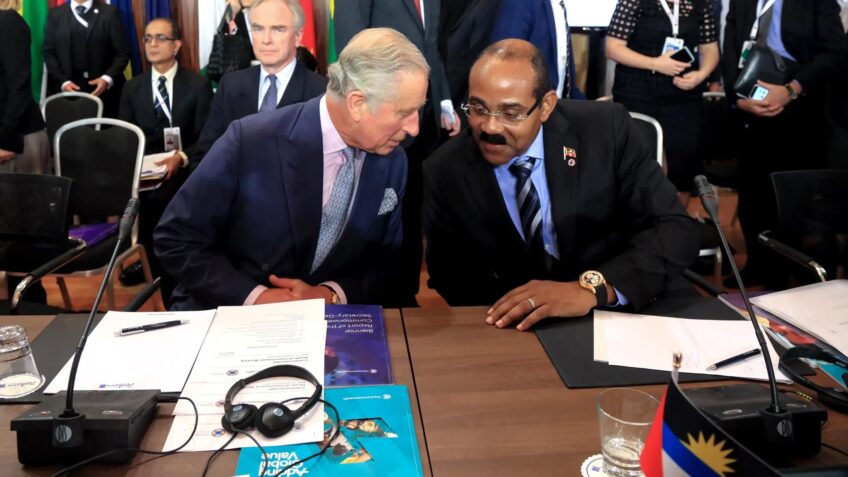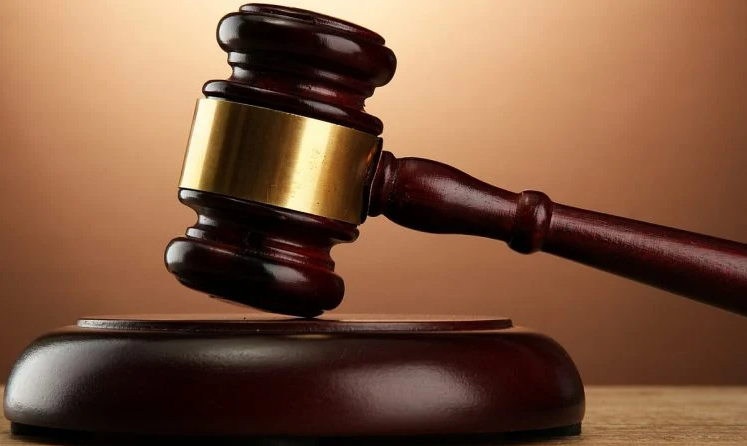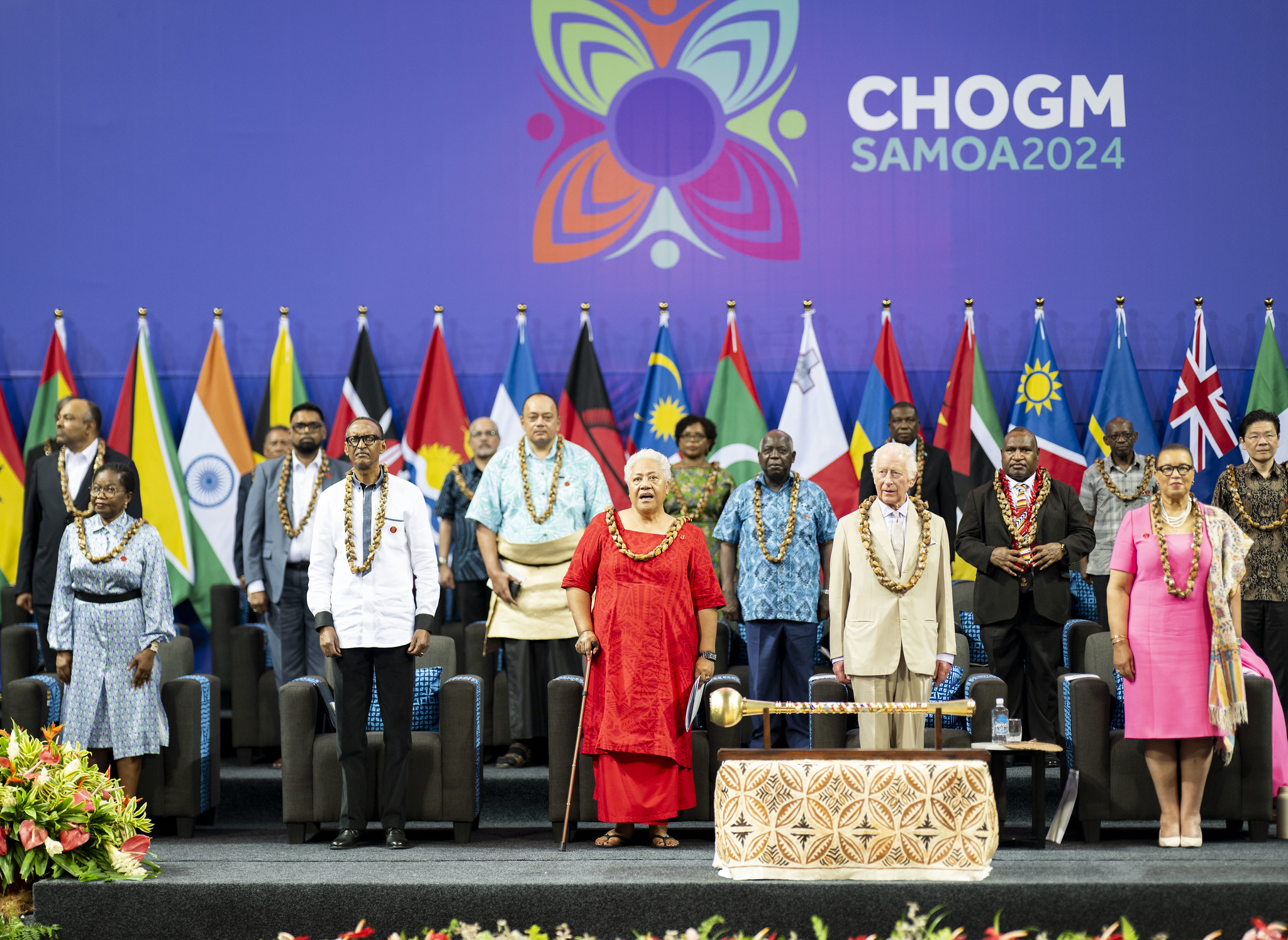In-Depth Reparations Dialogue Expected When Antigua and Barbuda Hosts Commonwealth Heads Meeting In 2026
 04 November 2024
04 November 2024


Antigua Set to Host In-Depth Reparations Dialogue After Samoa Meeting Deemed Insufficient
Prime Minister Gaston Browne has confirmed that the upcoming Commonwealth Heads of Government Meeting (CHOGM) in Antigua will include an intensive focus on reparations for Caribbean nations. The announcement follows the recent CHOGM in Samoa, where reparations were briefly acknowledged but not explored in depth, a decision that left Caribbean leaders seeking a more substantial platform for the issue. In a recent radio interview, Browne underscored the need for reparations discussions to go beyond symbolic recognition.
CLICK HERE TO JOIN OUR WHATS APP GROUP
“The issue of reparations is of great significance to the Caribbean region,” Browne declared. “While many of my colleagues have been gung-ho about having reparations as a substantive issue discussed in Samoa, I indicated that perhaps the timing wasn’t right for the United Kingdom.” He explained his suggestion to delay substantive dialogue until Antigua hosts CHOGM, giving the UK’s new government time to research the subject and prepare a policy stance. “This way, we can approach the discussion constructively, with all parties having done their homework,” he said.
CLICK HERE TO JOIN OUR WHATS APP GROUP
Browne also pointed out that a formal declaration on reparations is anticipated in Antigua. “In Samoa, reparations were discussed in a couple of paragraphs within the communique, but in terms of the substantive issue and having a formal declaration, that will come here in Antigua,” he emphasized. He expressed confidence that Antigua’s hosting of CHOGM would provide an ideal platform to achieve consensus on reparations.
For Browne, reparations must include financial compensation. “I’m one of the individuals who believe that the issue goes beyond building capacity,” he argued. “There cannot be reparatory justice without compensation. Our forebears worked for hundreds of years without pay, which created an undeniable liability.” Browne explained the scale of this historical debt, stating, “If you calculate the unpaid labor, it would amount to trillions of dollars. Imagine, for instance, if I could get free labor in Antigua and Barbuda today – I would become one of the wealthiest men overnight.”
Reflecting on the long-term impact of this exploitation, Browne remarked, “Profits were repatriated to North America and Europe, where they built out their universities, cities, and institutions. Meanwhile, Caribbean nations were left bereft of even the basic infrastructure like proper hospitals.” He argued that reparations are about justice, not handouts. “We’re not going cap in hand to the UK or any other colonial powers to beg,” he said. “This is a matter of justice, similar to our pursuit of climate justice.”
Browne linked reparations to environmental challenges, highlighting the responsibility of former colonial powers in contributing to climate change. “The same people who built out their economies by exploiting our ancestors went on to burn fossil fuels at unprecedented rates, leading to global warming,” he said. “And who suffers the most? The same small island states here in the Caribbean. So it’s a double burden we bear.”
Browne warned against delaying action on reparations. “If we don’t address this issue now and resolve it amicably, then history might repeat itself in new forms of oppression,” he said. “There’s nothing to stop future oppressors from repeating these injustices if they see that accountability can be evaded.”
Anticipating potential objections from current leaders who disclaim responsibility for the actions of their ancestors, Browne was firm. “Some may argue, ‘I didn’t do it; it was my forefathers,’ but the fact is, they still benefit from the wealth their forefathers generated through exploitation,” he stated. “In any event, they must pay the price to prevent recurrence. Justice requires accountability so that future generations are not burdened with the sins of their ancestors.”
Looking forward to the upcoming CHOGM, Browne expressed optimism. “We might not be able to resolve everything with a single meeting here in Antigua,” he admitted, “but if we remain committed, we can advance the conversation and set a clear direction forward.” He concluded, “These issues are real, and if we’re ever going to bring closure to the atrocities of the transatlantic slave trade, we must address the debt that remains. It’s about ensuring justice and accountability, not just for our generation, but for future ones.”
The meeting is scheduled to be held in Antigua and Barbuda in 2026, in the capital city of St. John’s. Antigua and Barbuda will be the smallest state to have hosted a Commonwealth summit.
Advertise with the mоѕt vіѕіtеd nеwѕ ѕіtе іn Antigua! We offer fully customizable and flexible digital marketing packages.Contact us at [email protected]
Related News

American Visitor Fined $1,000 for Attempted Cannabis Import at Airport

CHOGM 2024 Ends With Call To Action To Tackle Global Challenges Affecting Member States

Antigua & Barbuda's Shakyrah Davis crowned Miss Caribbean UK 2024

